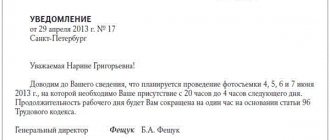Features of arranging a business trip in 2020
The main features of labor relations related to employee travel activities in 2020 can be considered:
- No need for travel certificates.
- Indirect regulation by the Tax Code of the Russian Federation of the amount of daily payments to a posted employee.
- Legislative regulation of daily allowances during a one-day business trip abroad.
- The ability to document an employee’s expenses for fuel in cases of going on a business trip by personal transport, based on the data of his report.
The main legal document regulating business trips is the Decree of the Government of the Russian Federation No. 1595, as amended in 2020. For 2020, this Resolution provides for no need to issue travel certificates. At the same time, the resolution relieves the employer of the obligation to issue official assignments to persons sent on a business trip.
There are no restrictions on daily allowance. However, Art. 217 of the Tax Code of the Russian Federation provides for exemption from taxation of amounts received as daily allowance in the amount of:
- Up to 700 rubles for each day you are on a business trip in the Russian Federation.
- Up to 2,500 rubles for each day you are on a business trip outside the country.
For one-day business trips abroad, daily allowances are paid in the amount of 50% of the amount regulated by Article 168 of the Labor Code. It is important when exactly the employee returned. If the return took place, even within 24 hours, but on the calendar date following the day of departure, payment of the daily allowance is made in the amount of 100%.
In cases of going on a business trip using the personal transport of the business traveler, in the absence of receipts for the purchase of fuel, the employer has the right to pay expenses based on the data provided in the report of the business traveler. The payment of expenses in this case, although they are not justified by documents, will be accountingly legal.
Opt-out options
Unreasonable refusal to travel has unpleasant consequences. Therefore, an employee can exercise his right as follows:
- If we are talking about a woman, then she can take advantage of her marital status. Most often, refusal of a business trip is justified by the presence of small children.
- When the previous option is not possible, you can take advantage of your disability. If the employee does not have dependent family members with disabilities, then he can go on sick leave.
For military personnel and law enforcement officers, there are also rules that do not allow people on sick leave to be sent on business trips, etc.
Can any business trip be considered a business trip?
Not every business trip can be recognized as a business trip
The foundations of state regulation in the field of business trips are laid by the Labor Code - Art. Art. 166–168 contain the main features of a business trip, guarantee the employee the preservation of basic labor benefits, and regulate the main points of payment of expenses. In addition, the rules limiting the circle of persons in respect of whom secondment may be “forced” or even possible are contained in a separate section of the Labor Code - the twelfth (Articles 259, 268). The secondment procedure is described in more detail in Government Decree 749 of October 13, 2008.
So, a business trip is a business trip for an employee. However, not every business trip can be called this term. For example, it would be absolutely contrary to common sense to send an intercity bus driver on a daily business trip, whose work initially involves “cruising” between several populated areas. In the same way, it makes no sense to send an employee to a neighboring street to resolve official issues in another organization. And it would be completely illegal to send an employee to another city during working hours to carry out personal assignments for the manager.
Nevertheless, the law provides absolutely clear criteria for determining a business trip:
- The seconded person must have an employment relationship with the employer (for those working under a civil law agreement, the concept of “business trip” does not exist).
- Departure is carried out by order of the employer (as a general rule - without taking into account the opinion of the employee).
- The purpose of the trip is to perform some official task.
- The departure takes place outside the locality in which the business traveler’s place of work is located.
Place of work
The key concept for business trips is the place of work
A point that raises many questions in the practice of business trips is the determination of the place of work of the business traveler. At first glance, everything is simple - the place of work is easy to establish, literally reducing it to the building of the organization where the workplace is located. Difficulties often arise when an employee:
- permanently works in a branch, and not in the parent organization - in this case, the place of work is the branch, but this condition must be reflected in the employment agreement with the employee (clause 3 of Resolution 749) - the trip is a business trip;
- works in the parent company, and is sent to a branch; in other words, his trip should take place within the same organization, but in different localities. In this case, the territorial attribute is decisive, and the trip will be considered a business trip;
- lives and sets off on a trip from a location other than the one where the permanent place of work is located - in this case, the business trip is still issued, but travel and daily allowances are not paid as a general rule (otherwise can be established by agreement with the management).
Example 1. An LLC employee, citizen Barankin, is registered and lives in the locality N, and works in the locality D, where the LLC branch is located. The company's head office is located in N. The employment agreement with Barankin states that his permanent place of work is a branch. The branch management decided to send Barankin to the head office of the LLC (settlement N, where Barankin lives). The head of the branch must properly formalize Barankin’s business trip - issue an order and issue a certificate. In this case, Barankin’s transportation expenses will not be paid, since he will not be able to present travel documents for traveling from point D to point H and back, and daily allowances will not be paid in accordance with paragraph 11 of Resolution 749 (the employee can freely return home after a working day business trip).
An interesting point is the secondment of remote and home-based workers to the office of the employing company. If we interpret the law literally, their place of work, by definition, is outside the company. If such an employee lives in another locality, he must be sent on a business trip. The hiring company itself issues the certificate, and it also records the arrival and departure from the destination. Travel allowances for such employees are paid in the usual manner.
Traveling work
The traveling nature of the work does not involve business trips
Some categories of professions (drivers, sellers of mobile retail outlets, etc.) presuppose daily travel of the employee between populated areas. The basic working conditions of the above-mentioned professions already take into account those incentives and guarantees that are provided for by the rules on business trips (they may be given an appropriate salary supplement). On the other hand, in order to be sent on a trip due to the traveling nature of the work, there is no need to check whether the employee has any restrictions on business trips. The law directly indicates the inadmissibility of business trips for such workers, as well as for those who work on a rotational basis.
The provision regarding the traveling nature of the work is necessarily included in the employment agreement. The categories of enterprise employees who may be subject to such a regime are determined by the collective agreement, other legal regulations, and industry documents.
Expenses associated with travel and accommodation are compensated by the employer in accordance with Art. 168.1 of the Labor Code either on the basis of supporting documents, or by establishing a salary increase.
Can they be sent on a business trip without the employee’s consent?
A trip for official reasons is organized by order of the employer. He determines to the subordinate a specific point of arrival, purpose and duration of the trip. A business trip cannot be “indefinite”; it is a kind of “short trip”.
If the travel assignment does not correspond to the position, profession (qualification) of the employee, he cannot be sent on a trip without his consent.
Having received a task from the head of the enterprise, the employee is obliged to carry it out. This does not mean all of his job responsibilities, but only a list of actions aimed at achieving his goals.
The absence of an exact official assignment may give rise to doubts regarding classification as a business trip. For example, being sent to advanced training courses is not considered a business trip.
Any employee can be sent on a business trip, regardless of position and length of service in the organization.
Only preferential categories of citizens specified in labor legislation can refuse. Rest
subordinates do not have the right to refuse the manager, otherwise their actions may be regarded as a refusal to fulfill their professional duties, which may provoke the dismissal of specialists.
If an employee does not want to go, citing valid reasons (family circumstances), then he can apply to the manager to reschedule or cancel the trip. But here the decision is made entirely at the discretion of the head of the enterprise; there are no instructions in the law for such reasons.
How to agree to travel on weekends?
Article 113 of the Labor Code of the Russian Federation states that an employer cannot require a subordinate to perform labor functions on a day off, but a business trip is an exception to this rule.
The employer has the right to send an employee on a trip to resolve work issues in cases where:
- its duration is more than 7 days;
- departure date is a day off;
- Resolution of emergency situations is required.
Consent to a business trip on a day off is provided in writing; it is acceptable to submit it in the form of a statement.
The form contains the following information:
- information about the legal entity;
- Full name, position of the head of the company and the applicant himself;
- document's name;
- text part recording consent to travel for business reasons on a day off;
- travel date and duration;
- link to the article of the Labor Code regulating the possibility of refusal, the employee’s awareness of its norms;
- date of consent and signature of the applicant.
In the main part of the application, the employee can also indicate the desired method of remuneration for work during non-working hours - double pay or time off.
.
How to register if you have a child under 3 years old?
A working woman who is raising a child (under 3 years old) has the right to refuse a business trip. This norm is regulated by Article 259 of the Labor Code of the Russian Federation. If the employee has no objections, then she issues written consent.
Before traveling, you should make sure that the woman has no contraindications from a medical point of view.
The employee also formalizes her consent in the form of an application addressed to the head of the company.
The text part of the document indicates the full name of the employee, the duration of the business trip, the date of departure, the absence of contraindications, and awareness of the right to refuse the trip.
Everything written is confirmed by the employee’s signature, and the date of registration of the application is indicated.
To recognize the right of an employer to send subordinates on long trips, it should be emphasized that the application of this rule must be used wisely, taking into account also the interests of employees. These guarantees for subordinates can be enshrined in a collective agreement, personnel regulations, or other local regulations.
For forcing an employee to travel, the head of the enterprise may face administrative liability under Part 1 of Article 5.27 of the Code of Administrative Offenses of the Russian Federation.
Business trip arrangements
Arranging for a business trip involves drawing up a lot of documents
Despite the fact that business trips are only a small and insignificant part of personnel work, their preparation includes several stages at once. And each of these stages presupposes that the personnel officer and accountant have knowledge of many nuances of the law.
The company may establish additional guarantees and travel conditions for its employees if they do not contradict the current law. To do this, it is necessary to develop and approve a local legal regulation - a regulation on business trips.
Registration of a one-day and multi-day business trip is no different, only the procedure for paying expenses differs.
Stage one: preparation and planning
An employee involved in arranging business trips for a company should be aware that not every worker can be sent on a business trip. At the same time, norms with legislative restrictions are “scattered” throughout the Labor Code.
Only if the event is approved by the employee himself are sent:
- mothers of children under three years of age (Article 259);
- single mothers and fathers who have a child under five years old (Article 259);
- workers who have a disabled child (Article 259);
- workers who, for medical reasons, are caring for a sick relative (Article 259);
- fathers raising a child without a mother (Art. 259);
- guardians and trustees of children (Article 264).
There is absolutely no opportunity to go on a business trip (even if the employee really wants it):
- expectant mother (Article 259);
- an employee who has not reached the age of majority (Article 268);
- employee-student, if the job assignment is not related to training (Article 203).
Having analyzed the employee’s candidacy for compliance with the specified criteria and found among them one of those that require consent to travel, this consent should be requested in advance. To do this, a notification is drawn up for the employee about management’s plans to send him on official duty and his rights. On the notification, the employee must personally express his consent or disagreement. It should be understood that the employee’s disagreement in this case cannot lead to any penalties (be it moral, material or disciplinary).
The employee’s consent to a business trip must be recorded in writing.
On the contrary, refusal to send an employee who does not have the above characteristics may be regarded as a culpable failure to comply with the orders of the manager.
Russian legislation does not contain rules requiring an employee to obtain consent for a long business trip. At the same time, labor standards in some CIS countries do not allow assignment on a business trip for more than, for example, thirty days without the employee’s approval.
Duration of business trip
The labor law does not contain any restrictions regarding the duration of business trips. However, this does not mean that the business trip can be endless. Thus, the duration of the trip is calculated based on the expected duration of the task (its complexity, volume, etc.). If the task is completed and the business trip continues, a transfer takes place, which, due to inconsistency in execution and lack of employee consent, will be considered a violation of the law.
A multi-day business trip, in agreement with management and if appropriate, can be arranged with a daily return. In this case, the employee will be paid for all travel documents, but will not be paid daily allowances.
When calculating the duration of a business trip, it is necessary to remember that travel time is also included in the business trip period. The easiest way to track the exact time is by looking at the departure time on your travel documents. Moreover, if the vehicle is sent from a point located outside the city (airport, river or sea port, etc.), the travel period additionally includes the travel time to this point. The same rules apply to determining the time of arrival (end of a business trip).
Example 2. Employee Rykov goes on a business trip on a plane that departs from an airport located outside the city at 1:30 on November 18. To determine the start day of a business trip, it is necessary to subtract three hours from the departure time (during this time you need to arrive at the airport as a general rule), as well as the travel time to the airport. In order to be at the airport at 22:30, Rykov needs to leave the city on a regular bus departing at 21:00. It is from this time that the business trip begins. This means that the start date of the business trip is November 17.
Second stage: paperwork
The procedure for documenting a business trip begins with the actions of the head of the structural unit where the seconded employee works (if there is no boss, then the employee himself can draw up the primary documents). At this stage two documents must be prepared:
- Memo (application) for a business trip addressed to the head of the company. The document indicates the destination, duration of the trip, purpose of the trip, and the need to provide transport. The manager will review the application and forward it to the HR department for execution.
The memorandum is usually drawn up by the head of the department. - A job assignment for an employee is an indication of a specific place, time, action and other necessary conditions (the document is not mandatory; the responsibility for its preparation can be assigned to the head of the department by local company documents).
Business trip assignment - a guide for the employee, a guideline for his future report
Based on the application for a business trip, the personnel service prepares an order and a travel certificate. Both documents are signed by the head of the organization, and the company’s round seal is placed on the certificate.
The travel order is prepared in accordance with the unified form T-9
Upon returning from a business trip, the employee must draw up a report on the execution of the assignment. However, this document is not required if it is not provided for by the company’s local regulations.
The business trip order must contain all the basic information about the business trip - full name. employee, duration of business trip, destination, purpose of referral, etc.
Travel certificate
A travel certificate is a key document for a business trip. It serves as confirmation of arrival and departure from each business trip point. The first mark - about departure from the sending organization - is affixed when issuing the certificate. The travel certificate is presented at the place of travel along with the passport.
The travel certificate is drawn up in accordance with the unified form T-10
The top part of the certificate must contain:
- its registration number;
- information about the administrative document;
- Full name and position of the traveler;
- destination (or points);
- dates and number of days of business trip.
The travel certificate is signed by the head of the company
Travel sheet is a field of identification specifically designated for marks of arrival/departure. The mark in each organization is made by a specially appointed person; he affixes the seal of the structural unit or organization to his signature.
At each destination, the employee must mark the travel document
All certificates issued by the company are registered in a special journal. The law does not establish a mandatory form for the journal, however, it is recommended to include in each entry the serial (registration) number, full name and position of the traveler, date of issue, order number, signature on receipt of the travel certificate.
The business trip log should contain license numbers and other important information about all business trips issued by the company
Before leaving, the employee has the right to write an application for an advance payment to pay the planned costs. To determine the exact amount, an estimate of planned expenses can be drawn up. Money is issued on account.
In his application for an advance, the employee must indicate the specific amount of money he will need
In the work time sheet, the business trip day is marked as K or 06.
In the timesheet, business trip days are indicated by the signs: K or 06
Third stage: extension of the tour of duty
If, for some reason, the official assignment was not completed during the originally established period of the business trip, or the employer decided to give the employee an additional assignment at the same point, the business trip can be extended. It should be taken into account that for those categories of employees who cannot be sent on a business trip without their consent, a new additional consent must be requested before extension.
Since the duration of a business trip is not limited by law, consent to its extension is not required from most employees (meaning those not in preferential categories).
After obtaining the employee's consent (if required), the employer must issue an order to extend the trip. It is necessary to make appropriate corrections in the travel certificate; if necessary, add space for additional arrival/departure marks to the travel document.
An order to extend a business trip is drawn up in free form
Reasons for not going on a business trip
Going on a business trip must be stipulated by the specialist’s job responsibilities. Cancellation of a trip is made if there is justification for this. There are two groups of workers who are prohibited by law from traveling. The first group that has a complete ban on this, if there is:
- pregnancy;
- disability;
- minority;
- student agreement.
The second group, which has a ban on traveling without the consent of an employee:
- women raising heirs until they are three years old;
- guardians with minor children;
- single mothers of children under five;
- parents of a disabled child;
- workers providing care for sick relatives on the basis of a medical report.
- employees who are in candidate status when elections take place.
There are also other reasons for management not sending employees on business trips.
Salary and travel expenses
The basic principle of paying for a business trip is that the employer bears all expenses associated with work and accommodation during the trip. Travel compensation in a broad sense consists of the following parts:
- Direct payment. In accordance with Article 167 of the Labor Code, the posted employee retains his average salary. This value is calculated in accordance with Government Decree 922 of December 24, 2007. In this case, those days that are provided for in the work schedule of the organization sending the employee are paid as working days.
- Compensation for travel, accommodation and other needs of which the employer is notified. If an employee goes on a business trip abroad, he will be reimbursed for the costs of obtaining a foreign passport, obtaining visas, etc.
- Per diem - payment of additional costs in case of a multi-day trip. Per diem is calculated in a fixed amount for each business trip day. This amount is determined in the employer’s local regulations, but you will not have to pay taxes on daily allowances not exceeding 700 rubles. per day for trips within the Russian Federation, 2,500 rubles. - for trips abroad.
If an employee is sent on a one-day business trip or a multi-day trip, but with a daily return, there is no need to pay per diem.
Sick leave for an employee who is on a business trip at the time of incapacity for work is paid in the usual manner. At the same time, for all days of sick leave (if all the rules for calculating them are followed), he is paid a daily allowance.
Procedure for payment and recalculation
As noted above, before sending an employee on a business trip, at his request, the employer must issue an advance. Upon returning from the trip, the employee submits an advance report along with documents confirming all expenses to the accounting department. Such documents may be:
- tickets (can be electronic) for travel in accordance with the business trip route (including travel between several destinations), checks for payment for bedding, invoices for travel documentation;
- receipts for payment for hotel rooms, invoices for payment for other housing under rental agreements;
- receipts for payment of services for processing travel documents, etc.
Based on the submitted documents, the accounting department recalculates, additionally accrues what was underpaid or withholds what was overpaid. In general, payment for a business trip occurs along with the calculation of wages for the month in which the trip took place.
The employee has the right to write an application for recalculation of the refund of funds spent on the trip
Business trip advance
The posted employee must receive an advance payment to cover travel expenses. It is issued for expenses related to living outside the home. The employee can also be provided with money for travel and hotel expenses.
As a rule, an advance is issued on the basis of an estimate or preliminary calculation or a written application from the employee. The forms of these documents and the procedure for registering an employee’s business trip are also approved in local regulations.
The advance is issued taking into account:
- duration of the business trip;
- established daily allowance limit;
- who buys the ticket and pays for the hotel - the employee or the company.
When making business trips abroad, an advance can be issued in the currency of the country of travel.
An advance can be issued for a business trip in one day, for the preparation of documents, payment for notary services, and the purchase of materials.
Changes since 2020
From January 8, 2020, there are some changes that affect business trips. Now there is no need to draw up a work assignment, issue a travel certificate, or receive from the employee a report on the assignment completed on a business trip (clause 2 of the Government of the Russian Federation of December 29, 2014 No. 1595).
These changes raise a number of questions.
1. Where to indicate the purpose of a business trip if there is no official assignment?
Today, it is enough to send an order on a business trip, which will indicate this purpose.
Despite the changes, some employers still continue to issue job assignments and travel certificates. Since there is no prohibition, you can act according to the old scheme, but only be sure to reflect this in a local regulatory act and approve the form of the document and the procedure for its preparation.
2. What should be in the order if a travel certificate and official assignment are not used?
The order for sending on a business trip should indicate:
- employer's name;
- FULL NAME. and the position of the employee;
- the structural unit in which the employee works;
- place, duration and purpose of the business trip;
- basis for issuing the order.
3. What should I indicate in the “Date and number of travel certificate” column?
If you do not use a travel certificate, then in this column you should indicate the number and date of the order to send the employee on a business trip.
It is very important to confirm the actual duration of the employee’s stay on a business trip. If your employee is traveling by train or plane, then the actual length of stay can be determined using travel documents. If an employee went on a business trip in personal transport, this is confirmed by a memo from the employee who was sent on a business trip in personal transport; it will indicate the deadlines. Supporting documents must be attached to the memo: waybills, invoices, receipts, cash receipts, etc. The Letter of the Ministry of Finance of Russia dated May 26, 2015 N 03-03-05/30168 specifies that “confirmation of the actual length of stay of an employee on a business trip may be any primary documents drawn up in accordance with the legislation of the Russian Federation on accounting, which indicate the fact that the employee is on the way to the place of business trip and back.”
When sending an employee on a business trip, you must:
1. Issue an order to go on a business trip.
2. Make an entry in the logbook for employees leaving on a business trip.
3. In the time sheet, make the appropriate o or “06”).
For days on a business trip, the employee is paid:
- average earnings;
- daily allowance for each calendar day of a business trip.
Employees are reimbursed for travel and rental expenses, additional expenses associated with living outside their permanent place of residence (daily allowance), as well as other expenses incurred by the employee with the permission of the head of the organization (clause 11 of the Decree of the Government of the Russian Federation of October 13, 2008 No. 749). The employer’s task is to determine the procedure and amount of reimbursement of travel expenses in local regulations (for example, in the Business Travel Regulations). It must be clearly stated which expenses are reimbursed to the employee.
How to pay per diem for a one-day business trip
Yulia Busygina, expert practitioner in accounting and taxation, head of accounting education at Kontur.School, comments on the question:
Is it possible to refuse a business trip - grounds according to the Labor Code
A business entity can send its employees on out-of-town trips to perform production tasks. As a rule, such travel outside the enterprise is the responsibility of the employee. The latter sometimes wonder whether it is possible to refuse a business trip. The law allows this to be done, but only to certain categories of persons.
Is the employee's consent to travel always necessary?
A business trip assumes that the employee will be away from home for some time. Therefore, you can often encounter the fact that employees do not want to go on such trips, and for various reasons they try to refuse them.
The law establishes specific situations in the event of which an employee may actually refuse to travel. But this list is closed.
In particular, this includes cases when the employee has not yet turned 18 years old, if a pregnant employee is sent on a business trip, if the employee has responsibilities due to which he cannot leave the city (for example, he is caring for and supervising a disabled person, he is a single parent, etc.), if the employee has a disability, etc.
All of the above categories of employees must provide written consent to a business trip. Without it, the administration has no right to send them on a business trip.
An ordinary employee can also give compelling reasons for not going on a work trip. But the final decision is still made by the head of the company.
Attention! Based on this, can they send an employee on a business trip without the consent of the employee - yes, but if he is not included in the preferential categories established by law.
Labor legislation for certain categories of employees establishes the opportunity to refuse a business trip.
Who should not be sent on business trips without their consent:
- Pregnant woman;
- An employee who has not yet reached the age of majority. However, this rule does not apply if the employee is engaged in creative professions, works in the media, etc.;
- An employee with a disability who is currently undergoing rehabilitation and has been determined that deployment will be detrimental to health;
- The employee performs duties on the basis of a student agreement, and the trip is in no way connected with it;
- A company employee is a candidate (this prohibition is established only for the period of elections).
Attention! For foreign citizens who reside temporarily on Russian territory, the period of business travel may be limited by law.
In what cases is a business trip possible with the written consent of the employee?
The following categories of workers can go on business trips, but only if they give written consent to this step.
This includes the following groups:
- Mothers who have small children under 3 years of age;
- Single parents (regardless of mother or father), if he is raising a child under 5 years of age;
- If the employee is the parent of a child with a disability;
- Workers who care for a sick relative.
If the employer provides such an employee with a ready-made business trip consent form, it must include information that he has the right to refuse the trip. If an employee does not give his consent to a business trip, then sending him on the trip is strictly prohibited.
Attention! These rules are also established in the case when it is necessary to extend the trip at the initiative of the employer.
Another case when consent must be obtained from an employee is the need to work on a business trip on a weekend or holiday.
Can an employee refuse a business trip?
In normal situations, an employee is not given the right to refuse a business trip. Labor legislation establishes that it is part of his official duties.
If an employee refuses to go on a business trip, the administration has the right to regard this step as a refusal to perform duties and hold the employee accountable, up to and including dismissal under the article.
Therefore, can an employee refuse a business trip? No. If it is not included in the number of preferential categories for which a ban is established or consent is required, then you cannot refuse the trip.
An employee may have valid reasons with which he can appeal to his management. Let's consider whether it is possible to refuse a business trip because of them.
For family reasons
The reason why an employee cannot go on a trip may be due to family circumstances.
For example, this could be the birth of a child, the death of a relative, marriage, etc. He has the right to take leave without pay for this period, and the employer will have to provide it.
You can ask your employer to cancel a trip if the employee’s anniversary falls during the trip.
Important! However, this reason is not specified in the regulations, and therefore this step is entirely at the discretion of the employer.
The presence of a small child in a family is not a valid reason for refusing a trip, even if the family has many children.
However, at the same time, an employee may fall into one of the preferential categories:
- He is a single parent and the child is no more than 5 years old;
- He is caring for a disabled child;
- He is the guardian of a minor child;
- He takes care of a sick relative (in this case, a child).
Attention! If these factors exist, the employee must be notified of the work trip in advance and consent must be obtained.
If an employee's spouse is pregnant, this may be a reason to refuse the trip, but it is not officially provided for by law. Therefore, the decision remains at the discretion of the boss.
However, you can get a certificate from a medical institution that she requires constant care, and this is provided by her husband. Then you can refuse the trip for legal reasons.
Other reasons
The following events in the life of an employee can also be considered valid reasons:
- An emergency situation that affected the employee or his family;
- The need to urgently obtain some document;
- An important event for the family.
However, in order to win over the manager, in each situation it is advisable to provide a supporting document.
For health
An employee may refuse to go on a business trip when he needs to undergo treatment, or a long trip is contraindicated for medical reasons.
In such a situation, the employee needs to prepare an application and attach a supporting document to it - a doctor’s certificate, sick leave, etc.
Insufficient funds allocated for the trip
Before leaving on a business trip, the employer must provide the employee with funds from which he will pay for travel, accommodation, food, etc.
An approximate calculation of the required amount is carried out by an accountant. If the employee is given insufficient funds to cover all expenses, and he can prove this fact, then he has the right to refuse the business trip, since he is not obliged to finance it from his own funds.
Attention! However, the lack of funds must be carefully justified and proven.
The employer is obliged to pay the employee money to finance business trip expenses.
If this is not done, then the employee has the right not to go on a work trip, since he is not obliged to finance it from his own funds. The employer does not have the right to impose disciplinary punishment on him in such a situation.
Source: https://infportal.ru/kadry/mozhno-li-otkazatsya-ot-komandirovki.html










